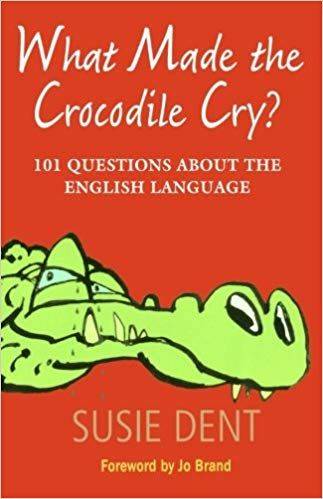
Download What Made The Crocodile Cry?: 101 Questions about the English Language PDF EPUB
Author: Author
Pages: 176
Size: 2.033,38 Kb
Publication Date: December 13,2009
Category: English
Why do good stuff trim the mustard? The writer also has an entertaining accounts of the foundation of the word “white elephant” (indicating “a worthless, burdensome possession”) that goes back to historic Siam, where uncommon white elephants were at all times directed at the king. And just why do we contact fake sentiment crocodile tears? Can crocodiles actually cry? , Susie Dent draws on her behalf popular tv segment on the curiosities of English to deal with these and several other exciting puzzles. In What Produced the Crocodile Cry? Composing with her customary attraction and erudition, Dent gives a wonderfully readable and endlessly interesting exploration of vocabulary, answering 101 of the very most intriguing queries about the English vocabulary, from term origins and spelling to grammar and use. Dent ranges all over in her seek out the oddities of vocabulary, pondering the historic origin of the term “tragedy” (which originally meant “goat track” in Greek) along with the contemporary meaning of the term “donk” in the Blackout Crew’s song name “Put a Donk in It.” And throughout, the book brims with amazing tales. But since for legal reasons white elephants couldn’t become worked (and make money) or actually end up being ridden, the king frequently re-gifted these worthless burdens to courtiers whom he didn’t like. Dent clarifies that in the sixteenth hundred years, money lenders executed their business on benches outside and the most common Italian phrase for “bench” was “banca” (hence today’s “lender”). Who or that which was the true Real McCoy? Visitors learn, for example, that the term “bankrupt” originates from the Italian “banca rotta” or “ damaged bench” and the term “broke” (meaning “out of funds”) gets the same origin. Sparkling with insight and linguistic curiosity, this delightful compendium will end up being irresistible to anyone captivated by language–the perfect present for word lovers just about everywhere.